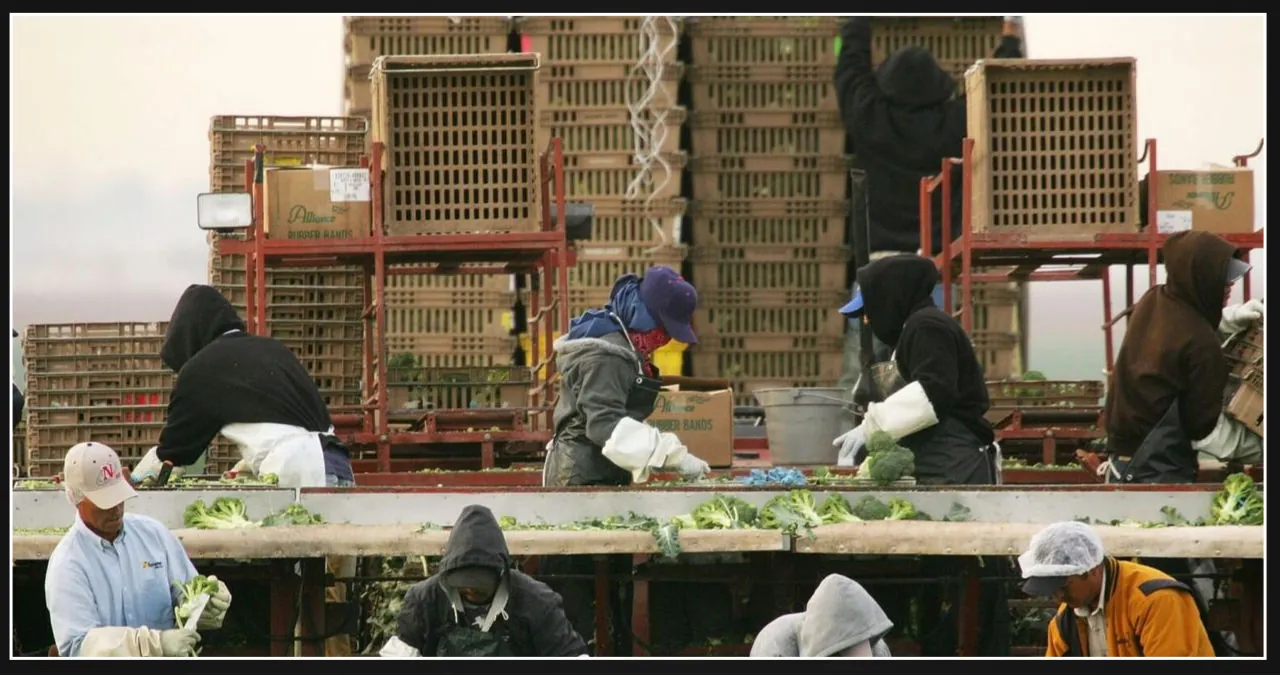Attorney General Chris Carr, who has recently announced his candidacy for governor, is optimistic that the change in administration in Washington will bring much-needed relief to Georgia farmers. These farmers have been facing increased costs in employing migrant agricultural workers. However, advocates argue that these laborers often do not receive the compensation they rightfully deserve, despite enduring challenging and hazardous working conditions.
“Our office’s request is to work with you and the Trump Administration to address the rising (wage rate) before Georgia farming simply becomes unaffordable,” Carr wrote in a letter to President-elect Donald Trump’s nominees to lead the U.S. departments of agriculture and labor for his second term, Brooke Rollins and Lori Chavez-DeRemer. “We believe the health of our farms is directly tied to the food security, national security, and economic security interests of the United States.”
The federal H-2A program provides temporary employment opportunities for individuals from foreign countries when there is a shortage of available U.S. workers. The pay rate for H-2A workers is determined by the federal government based on the region, and it is usually higher than the prevailing wage for American workers. This ensures that farmers do not hire inexpensive foreign laborers at the expense of American farmhands losing their jobs.
According to the U.S. Farm Bureau, the average rate for H-2A workers is expected to increase by 4.5%. However, the exact changes will vary depending on the region. In Georgia, for instance, the rate will rise from $14.68 to $16.08, which is a 9.5% increase. On a national scale, wages for civilian workers saw a 3.9% increase between September 2023 and 2024, as reported by the Bureau for Labor Statistics.
The rate for H-2A workers varies across different states, with the lowest rate set at $14.83 in Mississippi, Louisiana, and Arkansas, and the highest rate at $20.08 in Hawaii.
In December of last year, Carr’s office contacted Julie Su, the acting labor secretary, and agriculture secretary Tom Vilsack from the Biden administration to express their concern regarding the potential impact of increasing wages on Georgia farmers.
According to Carr’s office, farmers are experiencing increased expenses due to visa fees, as well as travel and lodging costs. They contend that the government lacks transparency in its calculations of these rates.
According to the University of Georgia’s Center for Agribusiness and Economic Development, Georgia’s economy in 2022 was bolstered by agriculture and related industries, which contributed $83.6 billion and supported 323,000 jobs. Carr emphasizes that imposing higher expenses on farmers has the potential to jeopardize this vital sector.
According to Solimar Mercado-Spencer, director of the Farmworker Rights Division at Georgia Legal Services, a nonprofit law firm, H-2A workers are currently facing the dual challenges of poor working conditions and unpaid wages.
Three years have passed, and H-2A workers continue to face issues of exploitation and hazardous working conditions.
Georgia is currently home to a significant number of H-2A workers, second only to Florida. The majority of these workers are men, with approximately 90% of them hailing from Mexico. It is worth noting that these individuals often have limited English language skills and are generally unfamiliar with the United States and its legal system.
Many individuals utilize the funds to provide financial support not only to their spouses and children but also to their extended family. As a result, they are often enthusiastic about finding employment opportunities. Unfortunately, some recruiters exploit their eagerness by imposing illegal charges for their recruitment services, in addition to legitimate fees and expenses.
According to Mercado-Spencer, migrant workers often have to take out loans in their home country to cover the upfront costs of their journey. As a result, they arrive in the destination country burdened with debt. In addition to their financial worries, these workers also face challenging living conditions. Many of them live in overcrowded housing that is in a state of disrepair. The lack of proper heating and air conditioning further exacerbates their discomfort. It is not uncommon to find these workers sleeping on mattresses on the floor, sometimes in shared living rooms due to the large number of occupants in one space.
According to Mercado-Spencer, a significant number of workers in Georgia are employed in the southern region of the state. These workers primarily engage in the labor-intensive harvesting of crops such as onions, blueberries, and green peppers.
According to Mercado-Spencer, workers in this industry often face challenging conditions. They are expected to work extended hours without any right to breaks. Employers are not obligated to provide them with rest periods, making it even harder for these workers. Furthermore, there are instances where they are not properly compensated for their time and effort. They may not receive payment for all the hours they have worked, or their paychecks may have unjustified deductions. This means that they are not receiving the full amount they deserve for their work.
According to the expert, individuals who are burdened with debt and limited to working for a specific employer under their visa have very little choice but to endure unfavorable conditions. Their main aim is to earn enough money to repay their loans.
According to Mercado-Spencer, increasing wages may lead law-abiding farmers to either pay more or enhance working conditions in order to attract American farm laborers. However, she remains skeptical about the actual benefits that workers who approach her with complaints would receive from a salary raise, if there is no proper enforcement in place.
“All of us, including farmers, including consumers, we all are benefiting from this labor, from these farm workers,” she said. “So we should be treating them fairly. It shouldn’t be all about benefiting farmers and consumers. We’ve got to think about the workers too when we are looking at these issues and be respectful and grateful for their service.”











Leave a Reply